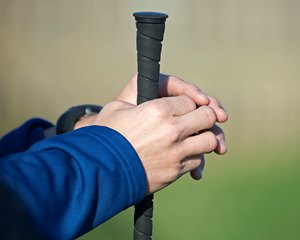CHRB Approves Minimum Suspension for Riding Violations


The California Horse Racing Board Feb. 22 unanimously approved a measure that sets a two-day minimum suspension for jockeys, should they violate the state's riding rules during a race.
The previous rule did not have a minimum for jockey suspensions, but the de facto minimum in recent years, based on the practices of the California's racetrack stewards, has been three days.
After an appeal for further discussion and to delay the decision by California Thoroughbred Trainers executive director Alan Balch, the CHRB approved the proposal, with the stipulation—in commissioner Jesse Choper's words—the rule "would be subject to further consideration."
Balch said the stewards should have more discretion in the area of suspensions to deter jockeys from careless and dangerous riding.
"There are some real issues here," Balch said. "The trainers, as far as I know, were not involved in the Stewards Committee meeting on this, and our board wants to bring some issues forward for your consideration. First of all, what is the urgency of this? This is a major change ... and we think that it is very important (to give the stewards discretion).
"There are some unintended consequences of potential in this rule, because as a matter of practicality, what will happen is the suspensions will generally be two days instead of three. Let's step back for a minute and ask, why this rule is here to begin with? It is to deter rough riding, it is to deter dangerous riding, it is to deter unfair riding. We know some of the stewards object to having so much discretion, but we believe they should have that discretion."
CHRB chairman Chuck Winner bristled at the suggestion the vote on the proposed rule change should be delayed.
"Where were you when we heard this the first time, Alan?" Winner asked, referencing the long regulatory procedure the CHRB has to go through to get to the point of a vote for final action on a proposed rule change. "We went through it at the Stewards Committee, we went through it at the meeting, we had a discussion, we had 45 days (and) nobody submitted anything in writing, and now, at the very last second, after all this time that was spent on this—now you're coming up and saying, 'Well, this is not a good idea.'"
Earlier in the discussion, an important aspect of the rule change—that the addition of a minimum suspension does not necessarily mean the state's stewards will change their current tactics of a three-day base suspension—was brought up.
"This says that the minimum shall be two days. It doesn't mean that there will be a change in the way stewards are currently applying suspensions," said CHRB executive director Rick Baedeker. "They can continue to give three days, or four, or two—whatever they want to do. It's up to them. There shouldn't be an understanding that automatically, beginning with the date that this rule becomes effective, that every suspension—call it every customary suspension (or) normal suspension—will be two days. That's not what this rule says."
Darrell Haire, the western regional manager of the Jockeys' Guild, endorsed the two-day minimum throughout the process, and cited fewer racing days in the modern era of horse racing as a reason to cut down on riding suspensions. Haire acknowledged that the minimum may not accomplish the desired goal, but was optimistic.
"My hope is that the stewards from north and south will follow (the minimum suspension of two days)—that they're consistent and fair," Haire said.
Earlier in the meeting, during time allotted for public comment, Haire also called for an evaluation of California's whip rule, which only allows for three consecutive strikes with a whip before the rider must give the horse a chance to respond to the encouragement.
"Not all horses respond the same, and the use of the riding crop needs to be at the discretion of the jockey," Haire said. "Since the implementation of the new rule, use of the riding crop has been the main focus of the vast majority of the fines and suspension of the jockeys by the CHRB stewards. Additionally it is our belief that the stewards are continually making modifications to their interpretation to the rule, and are inconsistent to the intent of the rule. ... We request for the CHRB to review the current rule regarding the use of the riding crop and be willing to listen to the recent changes to the (Association of Racing Commissioners International) model rule regarding the definition of 'a chance to respond,' as well as other areas of concern."
Choper then recommended a "blind" survey of the state's jockeys regarding the issue of whip use and Winner agreed. Neither indicated the details of how or when the survey might happen.
